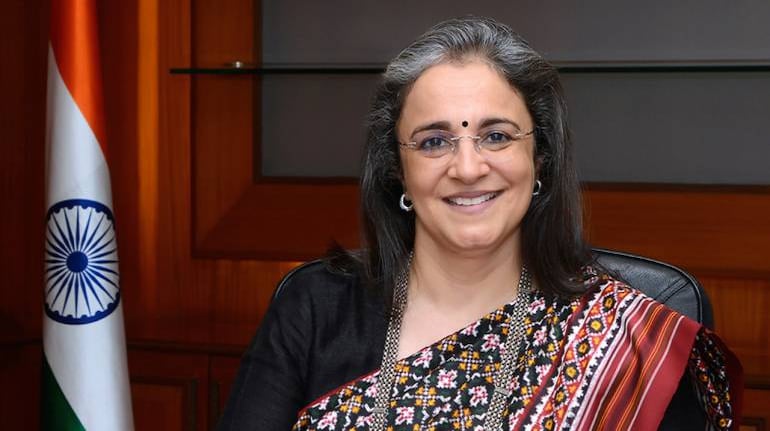



The pro-rata system of allotment in initial public offerings (IPOs) was stopped because it was corrupting the price-discovery mechanism, said the Chairperson of the Securities and Exchange Board of India (Sebi).
Madhabi Puri Buch was speaking at the CII Global Economic Policy Forum 2023.
Janmejaya Sinha, Chairman of Boston Consulting Group's India Practice, who was present in the audience, asked for an explanation on the "random" system of allotment in IPOs for retail investors and high networth individuals (HNIs) and why the pro-rata system of allotment was stopped. Before posing the question, he had added a disclaimer that the question had been sent to him by his investment banker friends.
Also read: My name is bond, Indian bond: Sebi's Buch on improving global profile of corporate bonds
In the pro-rata system, IPO allotment is done proportionally. It means that everyone who applies gets an allotment but not necessarily for the quantity they have applied for. If there is an oversubscription, then everyone gets an allotment proportional to the number they have applied for. That is, if an IPO has been oversubscribed by 2x, it means that for every share there are two applications. Then, the allotment will be done based on the ratio of applications received to the number of shares. In this case, for every two applications an investor has filed, one share will be allotted.
This process was not helping in the price discovery, according to Buch. It was painting the wrong picture of the IPO, showing a much higher interest in the offering than there actually was, she added.
She said, "The level of oversubscription in IPOs to our mind was getting inflated because of the pro-rata mechanism (if someone wants 100 shares, the investment banker will go to the client and ask the client to subscribe for multiple of what was needed. For example, if the banker expects the issue to be oversubscribed by 20x and if the investor wants 100 shares, the banker would ask to apply for 2,000). Therefore, the price discovery mechanism was being corrupted, because it was appearing as though I (a client) wanted 2,000 shares when actually I only wanted 100 shares."
Buch added that the process was "leading to a certain unnatural... price discovery". She took a long pause before using the term 'price discovery', saying that she was trying "to find a politically correct word for it".
The Sebi Chairperson reiterated that the market regulator will never sit in judgment on the price discovery of an IPO and that the regulator will let the market will determine the price based on demand and supply.
"But if your demand is being inflated because of the way in which the allotment is being done, our regulations were encouraging a person, who wanted 100 shares to put in an application of 2,000. On top of that, this was also leading to the use of a lot of leverage and the Reserve Bank of India also issued a circular in terms of funding of IPOs, and so on. This was a phenomenon that was happening in the market that was not healthy," she said, adding that that was why the new mechanism was come up with.
Buch also pointed out that the retail investors and HNIs could get the shares in the secondary market if they just wanted for a few days since there would be enough liquidity by then.
She said, "If someone is just putting a punt, expecting this (share price) to pop become double (quickly)... then you are not an investor, then you are a speculator. Then, boss, it can go either way. But, if you are an investor and think that there is long-term potential in the stock, and you want to hold that stock, please buy it on the third day, fifth day, after one month or after three months."
Also read: Buch deeply regrets Sebi inaction on de-freezing Kirloskar shares
Buch added that institutions can't do that because they buy big blocks and they move the market, but retail investors can easily wait for a few days.
She said that the regulator was only trying to correct a mechanism that was unhealthy, because "it gave an impression of much higher demand than there was".
Discover the latest Business News, Sensex, and Nifty updates. Obtain Personal Finance insights, tax queries, and expert opinions on Moneycontrol or download the Moneycontrol App to stay updated!
Find the best of Al News in one place, specially curated for you every weekend.
Stay on top of the latest tech trends and biggest startup news.